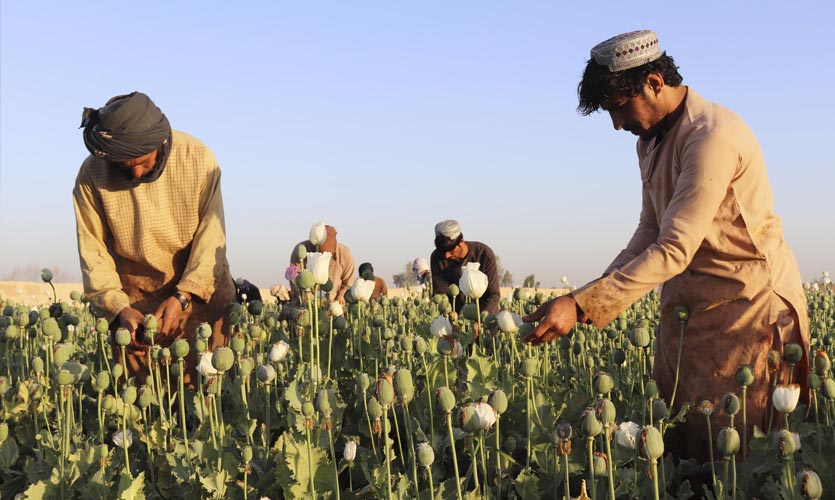On Sunday, Taliban leader Haibatullah Akhundzada issued a decree banning the cultivation of opium poppy, and making it punishable by Sharia law. The order was read out by the group’s spokesperson, Zabihullah Mujahid, at a press conference held in the capital city of Kabul. The statement read, “If anyone violates the decree, the crop will be destroyed immediately and the violator will be treated according to the Sharia law.” Afghanistan is the world’s largest producer of the plant whose exports and production have boomed in recent years. Opium from this plant is chemically processed to make heroin, morphine and codeine.
The statement read, “As per the decree of the supreme leader of the Islamic Emirate of Afghanistan, all Afghans are informed that from now on, cultivation of poppy has been strictly prohibited across the country.” The prohibition extends to transportation and trade of other narcotics such as alcohol, heroin, tablet K, hashish, and so on. If the order is violated, it warns the farmers that their crops will be burned and they can face imprisonment. The ban has also outlawed drug manufacturing factories in Afghanistan.
The Islamist group that took over the country in August 2021, is still seeking international recognition, hoping for some ease on sanctions that have severely impacted business, development and banking in the country. However, drug control has been one of the major demands by the international community, which the group is trying to fulfil. Despite the US and the rest of the international community investing years of efforts and billions of dollars to eradicate poppy production, last year marked the sixth straight year of record opium harvests. Washington reportedly spent $8 billion on eradication efforts, during their two-decade long stay in Afghanistan.
The Taliban was anticipating tough resistance from within the group against the ban, and also indicated a rise in the number of farmers cultivating poppy in the past few months. Although, before they took over, the group reportedly made millions of dollars by transporting drugs outside Afghanistan and charging taxes on farmers and middlemen. This became a key source for the group to generate funds.
This ban comes amid the economic and humanitarian crises in Afghanistan, where millions of small farmers rely on opium production to buy staples such as flour, sugar, oil and so on. This situation has led many to ramp up the growth of the illicit crop as crops like wheat and saffron do not guarantee a fast and high return, comparatively. Farmers and day labourers who grow opium poppy earn upwards of $300 a month for the cultivation and extraction of opium from the plant.
Read more: Afghans Forced To Sell Their Kidneys To Feed Children And Overcome Extreme Hunger
A farmer from the Helmand province of southeastern Afghanistan, speaking on the condition of anonymity, indicated that in recent weeks, the price of poppy had almost doubled due to rumours of the ban circulating. He added that “other crops are just not profitable”, and that he needs to grow the plant to support this family.
According to a United Nations Office on Drugs and Crime report released in 2021, Afghanistan is the world’s largest producer of opium, and has a near monopoly on it, along with heroin. The country reportedly accounts for 80 to 90 percent of the global output of heroin. The report added that the country’s income from opiates was between $1.8 to $2.7 billion, and contributed to more than 7 percent of the GDP. In 2017, when opium production in the country was at its peak, it was worth $1.4 billion.










